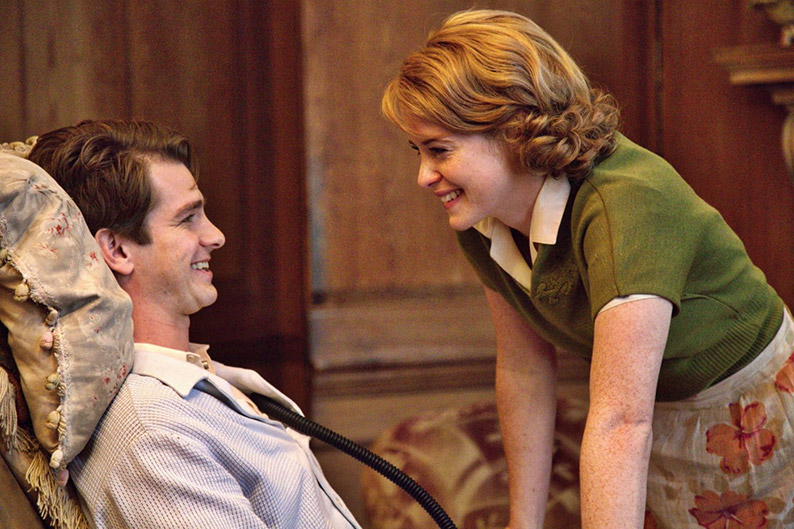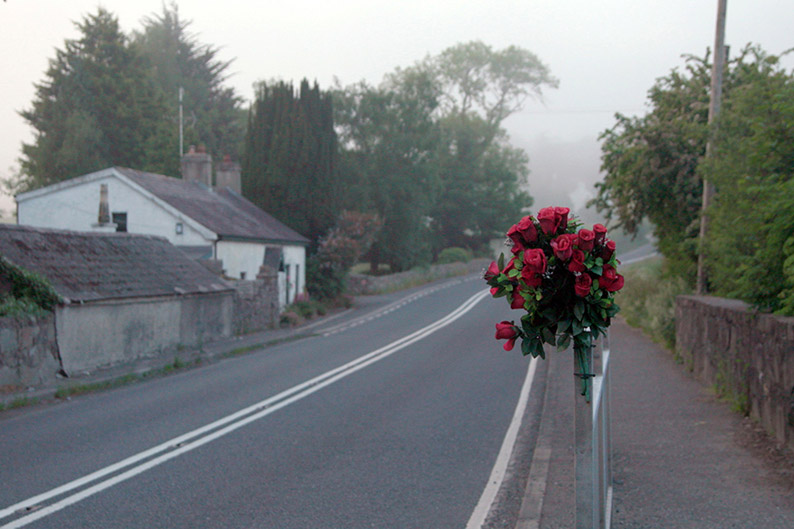|
Ardent cinephiles, assiduous critics, even browsing passing punters must plan meticulously to make most of any international ‘A-list’ film festival. Without painstaking preparation, the amount of films on offer can swamp one and festivals can become heaving quicksand composed of clashing or missed screenings. The need for forward-thinking and tight-planing is especially important as festivals offer one-off opportunities to see many fine films before they effectively vanish. Thankfully, festival programmes and brochures are usually to hand as invaluable planning (and promotional) tools containing (generally) trustworthy synopses that, in turn, offer navigational signposts or, if one reads between the lines, warning signs.
The explosion of film festivals detailed in Kenneth Turan’s Sundance to Sarajevo and elsewhere was followed, belatedly, by an increase in the amount of critical attention paid to the myriad ‘texts’ festivals produce - the blogs and catalogues, programmes and websites, marketing mush and mission statements they generate but, equally, the increasingly ubiquitous awards and prizes that confer cultural legitimization and abet the sales strategies of (some) distributors, producers, and studios. Attention to the microscopic details of this discursive flow or sprawl often reveals larger issues of reception so a passing note on one such detail might be instructive.
I prepared for the 12 days of this year’s London Film Festival by arranging my competing preferences into an elaborate system of cross-referenced dots, ticks and crosses. I hoped to miss nothing of note but things didn’t go according to plan with my plan; indeed, I hadn’t even reached ‘A’ in the index of film titles at the back of the festival programme before I encountered dizzying problems. The synopsis and details of 1%, the first title on the list, were there, where the index said it would be, on P.71; but 6 Days wasn’t actually described on P. 63 as we’d been led to believe it would be; F.J. Ossang’s oddball gem 9 Fingers was there instead, rather than on P.89 where it should’ve been; while the next film down, 22/22, wasn’t on P.77. This made the lucky dip of festival planning even more a matter delicious chance than usual but, no matter, to err is human and bigger mistakes will, and have been made.

When Claire Stewart succeeded former LFF Artistic Director Sandra Hebron in 2011, she excised the indispensible directors’ index from the festival programme, jettisoned the essential festival catalogue on cost grounds, and, thus, sent out clear signals about her priorities. As I sat beneath an enormous chandelier in a marble encrusted hotel during the press conference for Breathe, this year’s LFF Opening Night Gala, I wondered how many pages of how many informative brochures could be paid for from the budget for this well-organised jamboree alone.
Setting matters arising aside, Andy Serkis’s Breathe had much in common with last year’s Opening film, A United Kingdom - being an equally heartfelt and heartwarming, if occasionally cloying and thoroughly conventional weepie. Andrew Garfield, fresh from playing a soldier who refuses to bear arms in Mel Gibson’s Hacksaw Ridge, here plays a disabled trooper who squares up to polio and goes down fighting. In both films, our hero is steadfastly supported by a doting wife - a Diane (Claire Foy) here; a Dorothy (Teresa Palmer) there; each film concludes with archive images of the actual heroes re-presented in fictional form and left this reviewer willing to cry and laugh less if it might mean knowing and understanding more. But, hello, here comes our old friend Alex Gibney (of Mea Maxima Culpa fame) to remind us, albeit inadvertently, that understanding and feeling are inseparable.

The prolific American’s latest documentary, No Stone Unturned, presents the hard facts behind the Loughinisland massacre, during which loyalist paramilitaries slaughtered six unarmed Catholics watching football in a country bar. Almost miraculously, he does so in such a way (involving preventable reenactments and recycled clichés) that the cold, shocking facts largely leave us cold.
Reviewing the film in Variety, Owen Gleiberman says ‘ . . . in a strange way, the movie, as doggedly made as it is, remains stubbornly uncompelling’. He leaves us to guess what strangeness is involved but he’s right and, sadly, much the same could be said of Andy Serkis’s oh-so-English crowd-pleaser. If Serkis proves that it’s possible, after all, to treat polio with a light touch, Gibney demonstrates how easy it is to come unstuck on the fine details of recent Irish history. It’s hard to respect a film that tells us the war in Ireland began in the 1920’s (that’s Cromwell off the hook, then!) but impossible to deny the force with which it presents the irrefutable evidence of collusion and the dirty tricks of the British State.
It’s a measure of the thematic and tonal range presented by the British Film Institute and their festival team that we were able to watch films as different as Breathe and Alex Gibney’s No Stone Unturned on consecutive mornings. One would imagine that films about crippling disability and cold-blooded murder respectively would move one to the quick but there’s something in the repetition of shop-soiled, formal tropes that prevent us feeling things as intensely as we should. The festival will surely offer greater invention and depth of feeling in the days to come. |